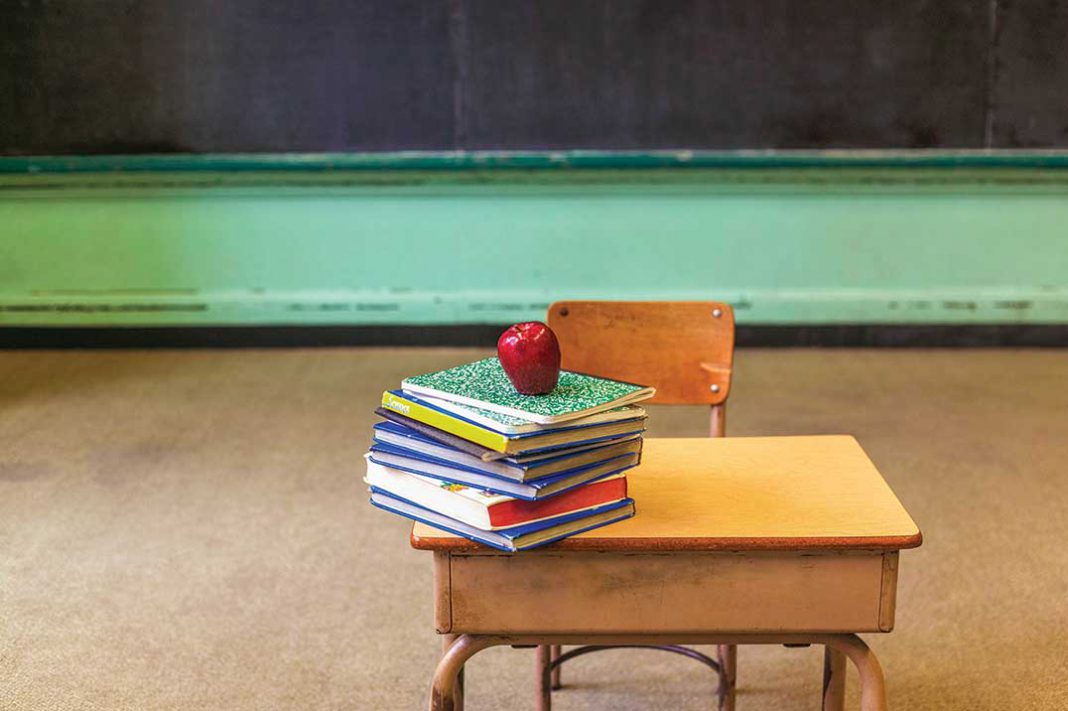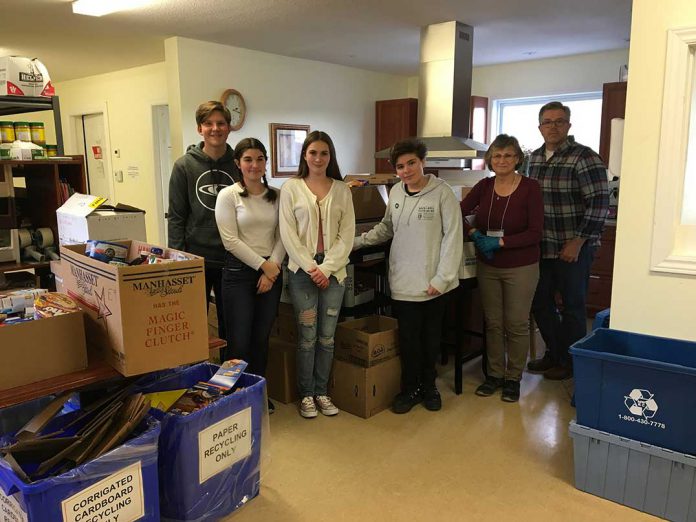M’CHIGEENG—The Creating Hope Project: Mental Health Individualized Plans Teacher Learning and Leadership Program now in place at Manitoulin Secondary School (MSS) seems to already be making a difference in the lives of students who are facing mental health challenges.
An MSS Grade 10 student who has been diagnosed with anxiety explained in an e-mail to The Recorder, “I find it helpful that the teachers know that when I say I need a break, they know where I’m going. Everyone in the office is so nice and caring so I have a quiet place to calm down. The school has been helpful for this.”
In the individualized plan, the student can identify a place in the school where they feel safe and there are adults they can speak with. For the student who provided a comment to The Recorder, they named the office as their safe place and their teachers know that if they leave the class, they are going to the office. The intent with having a safe place is that the student can take a break with the goal of returning to class once they feel better.
“It allows us to provide support for the students on mental health challenges they may be facing before the challenges become more challenging, like missing class every day,” MSS school social worker Allison Orford said on Monday. She explained the school has observed an increase in students presenting with mental health challenges which leads to high absenteeism and other school difficulties. “We are a caring staff at MSS and want to help,” she said.
Ms. Orford and Maya Holson, special education teacher and team leader of the project, sat down with The Recorder on Monday to outline the project prior to its official launch to staff and students this past Wednesday.
“The focus of the project has been Mental Health Individualized Plans (MHIPs) for students needing extra support within the classroom. We aim to work with students and parents to create plans so that teachers can better support students who have mental health needs in the classroom and in the school,” said Ms. Holson.
Ms. Holson said, “about three years ago, staff were really feeling the need to have better mental health supports in place for students. We had a number of students go into crisis, and we know that we, as classroom teachers, just weren’t responding to the needs as well as we could. We have developed different communication systems to better support students, and it is hoped that the Mental Health Individualized Plans help formalize those supports and strategies.”
It was pointed out by the two ladies that based on World Health Organization statistics, one in four youth experiences mental health challenges and 50 percent of these mental health challenges surface before the age of 14.
Ms. Orford noted, “we are thinking out of the box,” pointing out they are not aware of any similar initiatives in the board or province.
“For a number of years, we had looked at ways to help provide more support for students in dealing with mental health,” said Ms. Holson. “We had the idea but we needed the funding to put it in place. The team applied for a grant last November, receiving $29,875 in funding to develop mental health literacy, create a system for Mental Health Education Plans, and share their project.
The team members include Ms. Holson, Ms. Orford, Thomas Trudeau (Aboriginal Support Worker), Erin Ferguson (special education and business teacher), Allan Davy (student success teacher), Chris Theijsmeijer (music and student services teacher), Leslie Marshall (student services teacher) and Heather Theijsmeijer (a math program co-ordinator for the board). Jamie Mohamed, MSS principal and vice-principal Dennis Lafleur are very much in support of the program.
“We started preparing for the program last November and were approved for funding in March,” said Ms. Holson. “We worked further on the project and the first mental health individualized plan was presented to students two weeks ago.”
“First, we had to come up with strategies that had proven to be successful,” said Ms. Orford. “The literature and information we looked at showed what is most effective in helping the students.”
Ms. Holson explained that, “at present, we are piloting the Individual Plan with students and teachers. We have created a Google Form template with strategies for teachers and students to use. We have also created an online Google Classroom where students can discreetly access resources and help if they need it.”
The MHIP outlines a student’s strengths and needs, and strategies that the teacher can provide to a student.
“The students can fill in the form indicating they are interested, or fill it in through Google and speak to a staff member that they are most comfortable with,” said Ms. Orford, adding that “anxiety is the most common mental health challenge across the board.”
Ms. Holson pointed out the team is also furthering their health capacity knowledge, for instance, attending conferences focusing on mental health.
“It is truly a team approach; many different staff at MSS working together to address the student needs,” said Ms. Holson. “This is a wrap-around approach where we are empowering the students, parents and staff to work together to support the student’s success at school.”
The official launch to the program took place November 7, and at the end of this school year the team will present their findings and data to other schools and the Rainbow District School Board.





